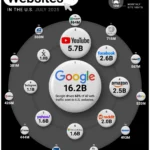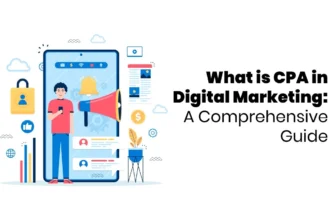Introduction: The Unstoppable Ascent of Online Learning in Australia
The professional landscape is no longer a static terrain; it’s a dynamic, ever-evolving ecosystem demanding continuous adaptation, upskilling, and reskilling. For Australian professionals navigating this new era, the pursuit of online learning has transitioned from a niche alternative to an indispensable pathway for career progression and personal development. Gone are the days when quality education was confined to traditional brick-and-mortar institutions. Today, a world of knowledge, expertise, and formal qualifications is accessible from your living room, coffee shop, or even during your commute, thanks to the explosion of online learning platforms.
This comprehensive guide is engineered for the discerning Australian professional – the manager aspiring to leadership, the developer eyeing machine learning, the accountant pursuing CPA certification, or the individual seeking a complete career pivot. We understand that your time is precious, your investments must be strategic, and your educational choices need to yield tangible results.
Our objective today is to provide an unparalleled deep dive into two of Australia’s most prominent online education avenues: TAFE Digital and University Online Courses. While both offer the convenience of online education learning, their philosophies, pedagogical approaches, accreditation, and career outcomes can differ significantly. We’ll dissect their unique offerings, comparing them side-by-side to empower you with the insights needed to make an informed decision that aligns perfectly with your ambitions.
Beyond this core comparison, we’ll also explore the broader landscape of online learning courses, including specialized programs in areas like learning Python, AI courses online free, and CPA online learning, alongside popular global platforms such as Coursera, edX, and LinkedIn Learning. We’ll uncover how to harness these resources, often including options for free online learning and free online courses, to augment your professional toolkit. By the end of this extensive article, you’ll possess a holistic understanding of the online learning ecosystem in Australia, positioning you to thrive in a competitive global market.
1. The Reshaping Landscape of Professional Development: Why Lifelong Learning is Non-Negotiable
In the 21st century, the notion of a single career path, or even a single skill set, defining one’s entire professional life is rapidly becoming obsolete. Australia’s economy, like many others globally, is undergoing profound transformations driven by technology, globalisation, and evolving consumer demands. For Australian professionals, this means lifelong learning isn’t just an advantage; it’s a fundamental requirement for relevance and advancement.
1.1. The Digital Revolution and the Demand for New Skills
The digital revolution has permeated every industry, creating new roles and rendering others redundant. Concepts like what is machine learning, deep learning, and artificial intelligence are no longer confined to academic papers but are actively reshaping business operations, from customer service to supply chain management. Professionals are now expected to possess not only core industry knowledge but also a robust understanding of digital tools and methodologies. This has fueled an immense demand for python learning online, web development courses, data analytics, and cybersecurity training. Platforms offering AI courses online free or structured programs in these areas are seeing unprecedented uptake.
1.2. Flexibility as the New Currency: Blended Learning and Remote Work
The pandemic undeniably accelerated the adoption of remote work and highlighted the critical importance of flexibility. This shift has also impacted education. Professionals, often juggling demanding careers, family responsties, and personal commitments, are increasingly seeking educational pathways that fit their lives, rather than requiring life adjustments. This is where online learning platforms truly shine, offering unparalleled flexibility in terms of time, location, and pace. The concept of blended learning, combining online modules with occasional in-person sessions, is also gaining traction, offering the best of both worlds.
1.3. Career Pivots and the Gig Economy
The traditional linear career path is being replaced by more dynamic, often winding journeys. Many professionals are considering significant career pivots, leveraging their existing skills while acquiring new ones. The rise of the gig economy further emphasizes the need for diverse skill sets and the ability to market oneself effectively. Online learning provides the ideal mechanism for these transitions, allowing individuals to explore new fields, acquire certifications, and build portfolios without disrupting their current employment.
1.4. The Australian Context: Industry Needs and Government Initiatives
Australia has a strong focus on vocational education and training (VET) through TAFE, alongside a world-class university sector. Government initiatives often support upskilling and reskilling in priority areas like healthcare (e.g., learning online qld health), technology, and sustainable industries. Understanding these national priorities can guide professionals towards courses that are not only personally fulfilling but also economically valuable.
2. Navigating the Online Learning Landscape: Modalities and Accreditation
Before diving into specific providers, it’s crucial to understand the various forms online education learning can take and the significance of accreditation. Not all online courses are created equal, and discerning the quality and recognition of your chosen program is paramount.
2.1. Understanding Online Learning Modalities
Online learning isn’t a monolith; it encompasses several delivery methods, each with its own advantages:
- Asynchronous Learning: This is the most flexible model, allowing learners to access course materials, lectures (often pre-recorded), and assignments at their own pace and on their own schedule. Discussion forums and email typically facilitate interaction. Most free online learning platforms and self-paced vocational courses fall into this category.
- Synchronous Learning: This involves real-time interaction, often through live online lectures, webinars, or virtual classrooms. While less flexible than asynchronous learning, it fosters a stronger sense of community and allows for immediate feedback and Q&A sessions.
- Blended Learning: As mentioned, this hybrid approach combines online components (asynchronous or synchronous) with face-to-face instruction or practical sessions. It’s particularly common for programs requiring hands-on skills or extensive group work.
- Massive Open Online Courses (MOOCs): Offered by platforms like Coursera and edX, MOOCs are designed for large enrollments, often at no cost for basic access (free online courses), with options to pay for certificates or verified tracks. They are excellent for exploring subjects or gaining foundational knowledge.
2.2. The Critical Importance of Accreditation and Recognition
For professionals, the value of an online learning course is often tied directly to its recognition by employers, professional bodies, and other educational institutions.
- Accreditation: In Australia, vocational education and training (VET) courses offered by TAFE institutions are regulated by the Australian Skills Quality Authority (ASQA), ensuring national standards are met. University degrees are accredited by the Tertiary Education Quality and Standards Agency (TEQSA). Always verify that the institution and the specific course you choose are accredited by the relevant national body.
- Professional Body Recognition: For specific professions, recognition by industry bodies is critical. For example, individuals pursuing finance careers would prioritize courses recognized by CPA Australia, while engineers would look for Engineers Australia endorsement. Checking for
CPA online learningspecific pathways is crucial for accountants. - Employer Acceptance: While formal accreditation is important, the ultimate test is whether potential employers value the qualification. Researching industry trends and asking employers or colleagues about preferred credentials can provide invaluable insight. Some platforms like LinkedIn Learning offer certifications that, while not formally accredited in the same way as a degree, are highly regarded in specific industries.
Understanding these distinctions ensures that your investment in online distance learning yields recognized credentials that enhance your career trajectory.
3. TAFE Digital: Vocational Excellence at Your Fingertips

TAFE (Technical and Further Education) institutions are the cornerstone of vocational education and training in Australia. TAFE Digital represents the online arm of this vast network, providing accessible, industry-focused qualifications designed to equip individuals with practical skills for immediate employment or career advancement. For Australian professionals, TAFE Digital offers a compelling alternative or complement to university study, particularly for those seeking hands-on expertise and direct pathways into specific industries.
3.1. What is TAFE Digital?
While TAFE is a state-based system (e.g., TAFE NSW, TAFE Queensland), TAFE Digital often refers to the coordinated online offerings that provide a broad range of certificates, diplomas, and advanced diplomas across various sectors. These courses are developed in close consultation with industry, ensuring their relevance and alignment with current workplace demands. Programs can range from trades and technical skills to business administration, healthcare support, and creative industries. The online learning nsw (TAFE NSW Digital) platform is a prime example of a robust state-based digital TAFE offering.
3.2. Target Audience: The Practical Professional
TAFE Digital primarily targets professionals who:
- Seek Practical, Job-Ready Skills: Graduates are often equipped with competencies directly applicable to specific roles.
- Are Eyeing a Career Change: It provides structured pathways into new industries without the long commitment of a university degree.
- Need to Upskill in their Current Role: For instance, a healthcare worker looking to specialize might find a
learning online qld health(TAFE Queensland Health) course highly beneficial. - Prefer a Shorter, More Focused Study Period: Diplomas and certificates are typically shorter than bachelor’s degrees.
- Are Looking for a More Accessible Entry Point to Tertiary Education: Entry requirements are often more flexible than universities.
- Value Cost-Effectiveness: Generally, TAFE courses are more affordable than university degrees, especially for domestic students through VET FEE-HELP or state subsidies.
3.3. Key Features of TAFE Digital Online Learning
- Industry-Focused Curriculum: Emphasizes practical application and real-world scenarios. Courses are continuously updated to reflect industry best practices and technological advancements.
- Flexible Delivery: Designed for working professionals, TAFE Digital courses typically offer asynchronous learning, allowing students to study at their own pace. Some courses may have mandatory live online sessions or practical components requiring attendance at a TAFE campus.
- Experienced Industry Trainers: Instructors often bring extensive professional experience to the virtual classroom, offering practical insights and mentorship.
- Pathways to Further Education: Many TAFE diplomas and advanced diplomas offer credit towards bachelor’s degrees at Australian universities, providing a valuable stepping stone for those who wish to pursue higher academic qualifications later.
- Robust Student Support: Access to online tutors, technical support, career advisors, and sometimes virtual campus resources.
- National Recognition: Qualifications are nationally recognized under the Australian Qualifications Framework (AQF), ensuring their credibility across Australia.
3.4. Benefits for Professionals
- Immediate Employability: The vocational nature of TAFE courses means graduates are often job-ready upon completion, making it an excellent choice for rapid career transitions or securing promotions.
- Targeted Skill Acquisition: You gain very specific, in-demand skills without needing to delve into broader theoretical concepts that may not directly apply to your immediate career goals.
- Affordability: Generally a more budget-friendly option compared to university degrees, with various government funding options available.
- Networking Opportunities: Connect with peers who are often working professionals in your chosen field, leading to valuable industry contacts.
College for Adult LearningExperience: TAFE is well-versed in catering to adult learners, offering support and course structures suitable for mature-aged students returning to study.
3.5. Potential Drawbacks
- Less Theoretical Depth: While practical, TAFE courses may not provide the same depth of theoretical knowledge or research opportunities as university degrees.
- Perceived Status: In some professional circles, university degrees might still carry a higher perceived status, although this is rapidly changing with the increasing demand for practical skills.
- Global Recognition: While nationally recognized, the global recognition of TAFE qualifications might vary compared to a university degree from a globally ranked institution.
4. University Online Courses: Academic Rigor and Strategic Growth
Australian universities offer a wide spectrum of online courses Australia-wide, from single professional development units to full bachelor’s degrees, graduate certificates, master’s degrees, and even doctorates. These programs are designed to provide in-depth academic knowledge, critical thinking skills, and research capabilities, often leading to significant career advancement and leadership roles. For professionals seeking intellectual enrichment, strategic career growth, or a recognized academic credential, university online courses are a powerful choice.
4.1. What are University Online Courses?
Australia boasts a world-class university sector, with many institutions offering robust online learning environments. These platforms provide access to the same curriculum, faculty, and academic standards as their on-campus counterparts. Universities like Flinders University (flinders learning online), Charles Sturt University, Deakin University, and UNSW Online are just a few examples that have developed sophisticated digital learning ecosystems. These courses are typically delivered through dedicated learning management systems (my online learning portals) such as Moodle, Canvas, or Blackboard, providing a comprehensive online classroom experience.
4.2. Target Audience: The Ambitious & Strategic Professional
University online courses are best suited for professionals who:
- Aim for Higher-Level Qualifications: Master’s degrees, PhDs, or advanced diplomas are crucial for leadership, specialized expertise, or academic careers.
- Value Theoretical Depth and Critical Thinking: These programs emphasize analytical skills, research, and a comprehensive understanding of subject matter.
- Are Seeking Global Recognition: Degrees from Australian universities often hold international prestige.
- Require Specific Professional Accreditation: For fields like law, medicine (post-graduate), engineering, or accounting (
CPA Australia), university degrees are often a prerequisite. - Are Ready for a Significant Time and Financial Investment: University degrees require a longer commitment and are generally more expensive.
- Enjoy Intellectual Challenge and Research: These programs often involve significant independent research and academic writing.
4.3. Key Features of University Online Learning
- Academic Rigor and Depth: Courses are designed by leading academics and researchers, offering a comprehensive and nuanced understanding of disciplines.
- Internationally Recognized Qualifications: Degrees from Australian universities are respected globally, opening doors to international career opportunities or further study, potentially even international collaborations like
unimib segreterie onlinefor Erasmus programs. - Research Opportunities: Many postgraduate online programs integrate research components, allowing professionals to contribute to their field’s knowledge base.
- Expert Faculty: Learn from renowned professors, researchers, and industry leaders who often teach both on-campus and online cohorts.
- Comprehensive Student Support: Access to academic advisors, library resources, online writing centres, mental health services, and career development support.
- Networking with Diverse Peers: Interact with a global cohort of professionals, enriching your perspective and expanding your professional network.
- Flexible Delivery: While offering flexibility, university online courses often maintain structured weekly modules, deadlines, and synchronous elements (e.g., live webinars) to foster engagement and academic discipline.
4.4. Benefits for Professionals
- Enhanced Career Progression: A university degree, particularly at the postgraduate level, is often a prerequisite for senior management, leadership, or specialized expert roles.
- Higher Earning Potential: Statistically, individuals with university degrees tend to have higher lifetime earnings.
- Specialized Expertise: Gain in-depth knowledge in niche areas, making you an expert in your field. This is particularly true for programs like
online machine learningordeep learningoffered at a master’s level. - Stronger Professional Networks: Connect with academics and ambitious peers who can become valuable contacts throughout your career.
- Development of Transferable Skills: Beyond subject-specific knowledge, you develop critical thinking, problem-solving, research, and communication skills highly valued by employers.
- Pathway to Professional Accreditation: Many university degrees directly lead to or are recognized by professional bodies. For example, specific postgraduate courses are essential for CPA online learning pathways to become a certified practicing accountant in Australia.
4.5. Potential Drawbacks
- Higher Cost: University tuition fees are generally higher than TAFE, though FEE-HELP loans are available for eligible domestic students.
- Longer Time Commitment: Bachelor’s degrees typically take 3-4 years full-time (longer part-time), and Master’s degrees 1.5-2 years.
- Less Immediate Practicality: While foundational, some university courses may be perceived as less “hands-on” or immediately applicable compared to vocational training, focusing more on theoretical understanding first.
- Intensive Academic Demands: Requires strong self-discipline, time management, and academic writing skills.
5. Direct Comparison: TAFE Digital vs. University Online Courses
Choosing between TAFE Digital and University Online Courses isn’t about one being “better” than the other; it’s about aligning the educational pathway with your specific career goals, learning style, and life circumstances. Here’s a direct comparison to highlight their key distinctions:
| Feature | TAFE Digital (Online) | University Online Courses |
|---|---|---|
| Primary Focus | Vocational training, practical skills, industry-ready. | Academic knowledge, critical thinking, research, theory. |
| Qualifications Offered | Certificates, Diplomas, Advanced Diplomas. | Bachelor’s degrees, Graduate Certificates/Diplomas, Master’s, PhDs. |
| Curriculum Approach | Competency-based, industry-validated, hands-on. | Discipline-based, theory-driven, analytical, research-intensive. |
| Duration | Shorter (e.g., 6 months for a Certificate, 1-2 years for a Diploma). | Longer (e.g., 3-4 years for a Bachelor’s, 1.5-2 years for a Master’s). |
| Cost | Generally more affordable, various government subsidies (VET FEE-HELP). | Higher tuition fees (FEE-HELP available for eligible degrees). |
| Entry Requirements | Often more flexible (e.g., Year 10/12, mature age entry, relevant work experience). | More stringent (e.g., ATAR, previous tertiary qualification, portfolio). |
| Career Outcomes | Direct employment, career change, specific skill acquisition. | Career progression, leadership roles, specialized expertise, research, academia. |
| Recognition | Nationally recognized (AQF), strong industry acceptance in specific trades/vocations. | Nationally and internationally recognized (AQF), higher global prestige for degrees. |
| Learning Style Suitability | Prefers practical, applied learning; direct application. | Prefers theoretical exploration, research, academic writing, critical analysis. |
| Pathway Opportunities | Can lead to university degrees (credit transfer). | Can lead to further postgraduate study, research, or professional accreditation. |
| Example Professional Use | Upskilling for a specific trade, gaining a Cert IV in Project Management, transitioning into Aged Care. | Master of Business Administration (MBA), Bachelor of IT (Software Engineering), Graduate Diploma in Data Science, CPA online learning. |
6. Exploring Niche & Specialized Online Learning Opportunities: Fueling High-Value Skills

Beyond the formal structures of TAFE Digital and University Online, the digital realm abounds with specialized online learning programs that cater to specific high-demand skills. This segment is particularly relevant for generating high CPC, as it attracts professionals investing in premium, targeted education for lucrative career paths. Many of these platforms offer free online learning options to get started, then transition to paid, certified programs.
6.1. Professional Certifications & Industry-Specific Training
Many professional bodies offer their own structured online learning pathways and certifications, which are often critical for career advancement and compliance.
- Accounting & Finance:
CPA Australia: For aspiring or current accountants,CPA online learningis paramount. The CPA Program is delivered online, requiring a university degree and specific foundation subjects. Platforms likeCPA My Online Learningare crucial resources. This is a high-value keyword due to the career implications.- Financial Planning, Investment Analysis certifications.
- Project Management: PMP (Project Management Professional) or PRINCE2 certifications are highly sought after, with numerous providers offering
online learning coursesto prepare for these exams. - Human Resources: Certifications in HR analytics, industrial relations, or talent acquisition.
- Healthcare & Allied Health: Specialized courses in areas like aged care, disability support, or public health. While
learning online qld healthmight refer to TAFE, specific short courses and professional development units are also available through universities or dedicated health education providers.
6.2. In-Demand Tech & Digital Skills
The technology sector is a perpetual growth engine, and mastering digital skills can significantly boost earning potential.
- Programming & Data Science:
Learning Python/Python learning online: Python is a foundational language for data science, AI, web development, and automation. Platforms like Codecademy, DataCamp, and Coursera offer excellentonline learning programsfor all levels.What is Machine Learning/Online Machine Learning/Deep Learning: These advanced topics are critical for careers in AI. Leading universities and specialized platforms like Coursera (e.g., Andrew Ng’s courses), edX, and Udacity offer comprehensive programs. Many tutorials and introductoryAI courses online freeare also available to pique interest.
- Web Development & UI/UX Design: From front-end frameworks (React, Angular) to back-end development (Node.js, Django), and user experience design principles.
- Cloud Computing: Certifications from AWS, Azure, or Google Cloud are highly valued.
- Cybersecurity: Demand for cybersecurity professionals is soaring, making online courses in ethical hacking, network security, and incident response extremely valuable.
6.3. Language Acquisition & Global Communication
In an interconnected world, multilingualism is a significant asset.
Language learning online: Beyond personal enrichment, language skills can open up international career opportunities.English learning online: For non-native speakers, improving business English or academic English is crucial.- Specific Languages:
Learning Spanish online, Mandarin, French, German – platforms like Duolingo (for casual learning), Babbel, Pimsleur, and even university extension programs offer structured courses. - Translation Tools: While not learning platforms, tools like
Google Translate, and professional services forarabic to english translation onlineorurdu to english translation online, highlight the increasing need for global communication solutions.
6.4. Aggregator Platforms & Open Courseware
These platforms consolidate thousands of courses, often from top universities and industry experts, making them excellent starting points for free online learning or exploring new subjects.
- Coursera, edX: Offer university-level courses, specializations, and degrees from institutions worldwide. Many courses can be audited for
free online courses, with verified certificates available for a fee. They are prime examples ofbest online learning platforms. - Udemy (similar to
udem): Features a vast library of courses taught by independent instructors, covering a wide range of practical skills. Often has sales making courses very affordable. LinkedIn Learning: Formerly Lynda.com, this platform provides high-quality video courses focused on business, technology, and creative skills, often included with LinkedIn Premium subscriptions.O'Reilly Online Learning: Specializes in technical and business content, offering books, videos, and interactive labs. Highly valued by tech professionals.Alison Online Learning: Another platform offeringfree online coursesand certifications across various fields.- Google Skillshop, HubSpot Academy: Industry-specific certifications offered by leading companies in digital marketing, analytics, etc.
6.5. Interactive & Specialized Learning Tools
These platforms often focus on engagement and specific learning styles.
Codecademy: Interactive coding lessons for various programming languages.IXL Learning: Focuses on K-12 academic skills, but the concept of interactive, adaptive learning is valuable across ages.Doodle Learning(DoodleMaths, DoodleEnglish): Adaptive learning apps primarily for children, but showcasing effective gamified learning principles.Kahoot: A popular game-based learning platform for quizzes and interactive lessons, adaptable for professional training.Scholastic Learning Zone: While for K-12, it represents the robust, interactive content available for specific educational needs.Languages Online: Resources for learning various languages.Learn Direct: UK-based, but a model for flexible, work-focused qualifications.Evidence for Learning: Data-driven assessment tools, important for professional development tracking.Learning Curve: A concept crucial for understanding skill acquisition over time.
7. Key Factors to Consider When Making Your Choice
The journey to select the ideal online learning platform or program is deeply personal. It requires a thoughtful evaluation of several key factors to ensure your investment of time, money, and effort yields the desired returns.
7.1. Align with Your Career Goals
- Immediate vs. Long-Term: Are you looking for a quick skill upgrade to fill a gap (TAFE Digital, professional certification, a specific
python learning onlinecourse) or a foundational qualification for long-term career growth and leadership (University Online Courses, MBA, Master’s inonline machine learning)? - Industry Recognition: Does the qualification need to be recognized by a specific professional body (e.g.,
CPA Australia), or is general industry acceptance sufficient? - Promotion or Pivot? Are you seeking a promotion within your current field, or are you planning a significant career pivot into a new industry altogether?
7.2. Budget and Financial Investment
- Cost of Tuition: TAFE courses are generally more affordable than university degrees. However, factor in government funding (VET FEE-HELP, FEE-HELP), scholarships, and potential employer sponsorship. Don’t forget
free online coursesandfree online learning platformsas a starting point. - Opportunity Cost: Consider the time you’ll dedicate to study. Will it impact your work hours, and what is the potential return on this time investment?
7.3. Time Commitment and Flexibility
- Study Load: Can you commit to part-time or full-time study? University degrees often demand a more significant weekly time commitment than TAFE courses.
- Schedule Flexibility: Do you need fully asynchronous learning, or can you accommodate synchronous online sessions? Most
online learning platformsoffer flexibility, but the degree varies. - Duration: Are you prepared for a multi-year degree or a shorter, certificate-based program?
7.4. Learning Style and Support Needs
- Practical vs. Theoretical: Do you thrive with hands-on, practical application, or do you prefer theoretical exploration, research, and critical analysis?
- Independent vs. Structured: Are you a highly self-motivated independent learner, or do you require more structured guidance, regular feedback, and peer interaction?
- Support Services: What level of student support do you need? Access to academic advisors, career services, mental health support, and technical assistance can significantly impact your experience. Some
online learning centersoronline learning hubsare better equipped than others.
7.5. Accreditation and Credibility
- Always Verify: Ensure the institution and course are accredited by the relevant Australian authorities (ASQA for VET, TEQSA for higher education).
- Industry Endorsement: For professional certifications, check for recognition by peak industry bodies.
- Global Recognition: If international career prospects are important, research the global standing of the institution and qualification.
7.6. The “Live Daily Information” Imperative: Staying Up-to-Date
The online learning landscape is exceptionally dynamic. Course offerings, fees, and even accreditation details can change. Therefore, it is imperative that you always:
- Visit Official Websites: For the most current information, always refer directly to the official websites of TAFE Digital branches (e.g., [Link to TAFE NSW Digital Official Site]), individual Australian universities (e.g., [Link to Flinders University Online Learning]), and specific professional bodies (e.g., [Link to CPA Australia Website]).
- Contact Admissions/Enrolment: Speak directly with course advisors or admissions teams to clarify details, discuss eligibility, and inquire about specific intake dates.
- Check Course Guides Annually: Educational institutions update their course guides and handbooks regularly. Ensure you are reviewing the most recent versions.
- Monitor Industry Trends: Keep an eye on job market reports and industry news to ensure your chosen qualification remains relevant and in demand.
8. Maximizing Your Online Learning Experience: Strategies for Success
Enrolling in an online learning program is just the first step. To truly succeed and reap the full benefits of online learning, professionals need to adopt specific strategies that harness the flexibility while mitigating the potential challenges (disadvantages of online learning).
8.1. Cultivate Self-Discipline and Time Management
- Structured Schedule: Even with flexible asynchronous courses, establish a dedicated study schedule and stick to it. Treat online learning like a serious commitment.
- Break Down Tasks: Divide large assignments into smaller, manageable chunks.
- Minimize Distractions: Create a dedicated study space free from interruptions.
- Utilize Tools: Use calendars, planners, and productivity apps to stay organized.
8.2. Actively Engage with Course Material and Peers
- Go Beyond Passive Consumption: Don’t just watch lectures; take notes, pause and reflect, and ask questions.
- Participate in Forums: Engage with discussion boards, ask questions, and contribute your insights. This is crucial for building a sense of community in
online distance learningenvironments. - Form Study Groups: Connect with classmates virtually. Group discussions can deepen understanding and provide peer support.
- Seek Feedback: Proactively request feedback from instructors and tutors.
8.3. Leverage Available Resources
- Instructor Interaction: Don’t hesitate to email your instructors or attend virtual office hours. Their expertise is invaluable.
- Library Services: Online learners often have access to extensive digital libraries, research databases, and academic support services.
- Technical Support: Familiarize yourself with the
online learning system(e.g., Moodle, Canvas) and know how to access technical assistance if needed. - Career Services: Many institutions offer online career counseling, resume reviews, and job placement assistance.
8.4. Maintain a Healthy Work-Life-Study Balance
- Prevent Burnout: Online learning requires intense focus. Schedule breaks, engage in physical activity, and ensure you get enough rest.
- Communicate: Inform your employer, family, and friends about your study commitments to manage expectations and gain support.
- Prioritize Well-being: Remember that your mental and physical health are paramount. Don’t let study overwhelm you.
8.5. Embrace Technology and Digital Literacy
- Master the Tools: Be comfortable with video conferencing, document sharing, and the specific learning management system used by your institution.
- Stay Updated: The digital world is constantly evolving. Keep your software updated and explore new tools that can aid your learning. For example, understanding how AI tools complement learning, not replace it, is a valuable skill.
By proactively managing these aspects, professionals can transform their online learning journey into a highly rewarding and impactful experience, truly leveraging the benefits of online learning to advance their careers and expand their horizons.
Charting Your Course in the Australian Online Education Ecosystem
The Australian online education landscape for professionals is rich, diverse, and brimming with opportunities. Whether you lean towards the vocational prowess of TAFE Digital or the academic rigor of University Online Courses, the ultimate “best” choice is uniquely yours. It hinges on a meticulous alignment of your personal ambitions, current career stage, financial considerations, and preferred learning methodologies.
For those seeking to acquire immediate, industry-specific competencies, effect a swift career change, or secure a highly practical qualification, TAFE Digital presents an unparalleled pathway. Its focus on job-ready skills, close industry ties, and often more accessible entry points make it an excellent choice for a tangible, rapid impact on your professional life.
Conversely, if your aspirations involve deep theoretical understanding, strategic leadership roles, international recognition, or highly specialized expertise (such as in online machine learning, deep learning, or comprehensive CPA online learning), then the comprehensive degrees and graduate programs offered by Australian University Online Courses will provide the robust academic foundation and global credibility you seek.
Furthermore, the expansive ecosystem of online learning platforms—from the specialized technical training offered by Codecademy and O’Reilly Online Learning, to the diverse university-level content on Coursera and edX, and the professional development resources on LinkedIn Learning—offers invaluable avenues for continuous growth. Don’t overlook the myriad free online learning and free online courses options that can serve as excellent starting points for exploration or skill enhancement.
The key takeaway is empowerment through informed choice. We’ve delved into the nuances of each option, highlighting their strengths and ideal use cases. As you embark on this exciting journey, remember the “live daily information” imperative: the online learning world is dynamic. Always verify details directly with institutions, ensuring your decisions are based on the most current data available.
Embrace this era of accessible knowledge. Your future, redefined and enriched, is just a click away. Start exploring today, and invest in the most valuable asset you possess: your intellect and your capacity for growth.












